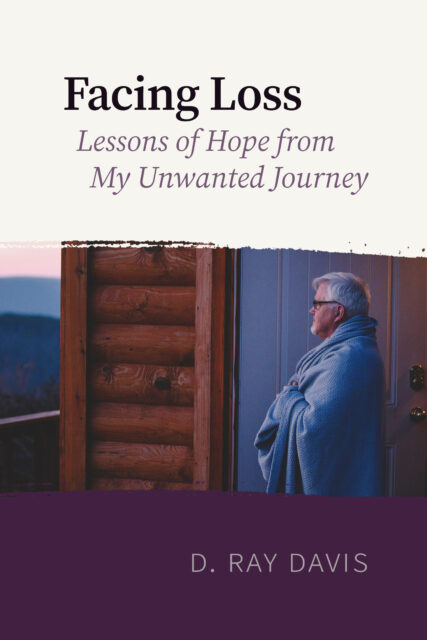Normally, I am not a person who emotes very easily. I generally don’t cry. I can name the times I’ve cried before Kim died. I’m just not overly emotional.
However, real loss has changed me. I cried every day for almost seven months after Kim’s death. And the tears turned out to be a gift. Mine wasn’t messy or out-of-control fits of crying. I’ve described it to some as simply a weepiness.
“You have kept count of my tossings; put my tears in your bottle. Are they not in your book?” Psalm 56:8
I have learned the gradual and daily release has been healthy for me. As I embraced tears, I began to see a couple of scenarios playing out. First, there was protected or planned time to mourn. I arranged time to process my grief, and the emotion that came with it simply flowed. The protected time was usually in the mornings. And then, second, there were times when I had unplanned waves of tears. I had to learn to be responsive. It was like an assault. Ready or not.
There’s a key lesson here: To drain the serious injury brought to your soul by loss, you must embrace and plan for tears. You’re draining a wound.
When it came to the first lesson, intentional mourning, I began my day quietly. I protected the mornings as much as possible. I read books to help me face grief. Erich Bridges, who had lost his wife to cancer, gave me a devotional book on grief. I read multiple devotional entries each day. I read other books. One particular book, A Grace Disguised: How the Soul Grows Through Loss, was exceptionally helpful. I’d read my Bible. I’d pray. I’d speak conversationally to God. Sometimes I could only groan.
The second lesson I learned was to embrace the unplanned waves of tears. Planning intentional mourning does not prevent unplanned interruptions by grief. It’s the little things. A smell. A sight. A memory. A connection with a friend or one of my children. It may flood your mind at the most unexpected times, and the tears just flow uncontrollably. Ready-or-not-out-of-the-blue tears. And it’s okay. In fact, it’s healthy. A very real wound is being drained.
I learned to receive intentional and unplanned mourning as a gift of preventative medicine. On a long, unwanted journey the slow draining of the wound of grief is a sign of healing.
I also noticed that writing helped me process my grief and facilitate my healing. I wrote to remember. I wrote to celebrate life with Kim. I wrote to mourn. I wrote to heal. I wrote to grow through my loss. I wrote to live. I wrote to grieve but not without hope. I wrote about my grief to process any necessary repentance. Grief removes the veneer of self-sufficiency. I wrote to worship.
I learned not to be afraid of tears because a wound such as the loss of love has to be drained.
“You have fed them with the bread of tears and given them tears to drink in full measure.” Psalm 80:5



 Read the E-book Facing Loss: Lessons of Hope from My Unwanted Journey
Read the E-book Facing Loss: Lessons of Hope from My Unwanted Journey
D. Ray, your writings are such a fitting testimony of Kim. Your words comfort so many who knew and loved her, and serve not only as a balm to your soul, but to so many who are grieving their own losses. I’m currently serving as Director of Spiritual Care & Bereavement Services for a local hospice. Your words help me to understand, and explain “good grief” to those I serve. Grace and peace, and much love to you and your incredible family. Keep on writing. Keep on healing. Blessings, Kim Chafee
Thanks, Kim. Tell Scott hello for me. And I have kept writing and the surprising development is that my blog is queued until April 2022 so far…just loading my journal entries from mostly the first year and beyond. Thanks for your comments and I would be so grateful to know that these lessons of hope can help others.
D. Ray, be assured your pen on paper, sharing your heart has and continues to bring much comfort to many including myself. Grief is an area not discussed even in our church environments. We gravitate away from pain, hurt, loss and confusion. What a truth that we have to learn to embrace this grief and to embrace the loss. I treasure your gift and thank God for you, my brother in Christ.
Thank you, Annette. I appreciate you being on the journey.
Thank you for being open and sharing your journey. I could not cry at first after my husband passed when I was awake even though I thought it might help, but would wake up crying from my sleep. It doesn’t happen as often now after 4 years, but there are still special memories that trigger the sleeping crying. God has been my strength through it all and my source.
I understand, Annette. And I don’t cry now as much as I did in the first seven months.
Thanks again D Ray. Your words help me understand the grief process of my last 2+ yrs. You are very gifted in sharing your journey and your writing has been a lifter of my head.
Donna B
Thank you, Donna. I am so glad it has been helpful.
Thank you D Ray! Still enjoying the aftermath of embracing emotional pain. It’s kinda like being delivered from an evil spirit. The release is amazing.
Mike Murphy
Thanks, Mike. I’m glad you’re healing and experiencing release. Blessings!
The unplanned tears taught me the most about my loss, my grief, my fears…Such an honesty and vulnerability in this post today D Ray. “Grief removes the veneer of self-sufficiency .” Oh man, how so utterly true…
the powerlessness over death, loss, grief, tears … it stopped me in my tracks. Re-examination of everything I thought I knew…
Thank you for the most heartfelt post today.
Kathi
My husband’s death was not sudden. He had been given a life expectancy of 12-18 months. My period of grief included lots of praise for God extending his life for two years. Those were the best years of our marriage. There were little to no disagreements. I learned so much during that period of grief. The extra 30 minutes you spend at work seem short but feel like two hours to someone who can’t wait for you to come home. The gift of leaving a monthly review of an MRI brain scan with good news is better than I remember Christmas Day excitement as a child. What would I have done if I had been given a projected timeline before I left this earth. I would travel to places I had always wanted to see. But my sweet husband chose differently. I still remember his choice with little to no thought. “What I want most of all, is for you to sit right here next to me in this chair and hold my hand while we watch movies together. This is what I think I’ll miss the most.” In his dying, he taught me so much about faith, grace and what’s really important in life. And yes, there were tears but also much joy to reflect upon.
I pray that husbands and wives everywhere value their life companion and treasure every moment they have together. Investing in and enjoying companionship is what I miss. Walking through life with her was a gift.
You put in beautiful words the pain and grief that those of us who have lost our life partners experience. Thank you for that. It’s been 9 years since Keith’s death, and there are still days that I can’t believe it happened. Grief sneaks up in the most unlikely places. Thank you for doing what you are doing and allowing us all to walk with you. God is using it.
May he use it to strengthen others in their faith, even and especially, in their pain.
Thanks for joining me on this journey, Kathi.